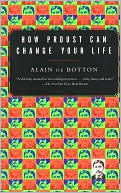Category Books
- Fiction Books & Literature
- Graphic Novels
- Horror
- Mystery & Crime
- Poetry
- Romance Books
- Science Fiction & Fantasy
- Thrillers
- Westerns
- Ages 0-2
- Ages 3-5
- Ages 6-8
- Ages 9-12
- Teens
- Children's Books
- African Americans
- Antiques & Collectibles
- Art, Architecture & Photography
- Bibles & Bible Studies
- Biography
- Business Books
- Christianity
- Computer Books & Technology Books
- Cookbooks, Food & Wine
- Crafts & Hobbies Books
- Education & Teaching
- Engineering
- Entertainment
- Foreign Languages
- Game Books
- Gay & Lesbian
- Health Books, Diet & Fitness Books
- History
- Home & Garden
- Humor Books
- Judaism & Judaica
- Law
- Medical Books
- New Age & Spirituality
- Nonfiction
- Parenting & Family
- Pets
- Philosophy
- Political Books & Current Events Books
- Psychology & Psychotherapy
- Reference
- Religion Books
- Science & Nature
- Self Improvement
- Sex & Relationships
- Social Sciences
- Sports & Adventure
- Study Guides & Test Prep
- Travel
- True Crime
- Weddings
- Women's Studies
How Proust Can Change Your Life »

Authors: Alain de Botton, Alain De Botton
ISBN-13: 9780679779155, ISBN-10: 0679779159
Format: Paperback
Publisher: Knopf Doubleday Publishing Group
Date Published: April 1998
Edition: (Non-applicable)
Author Biography: Alain de Botton
Alain de Botton was born in 1969. He is the author of the novels On Love, The Romantic Movement, and Kiss and Tell; his work has been translated into sixteen languages. He lives in Washington, D.C., and London.
Book Synopsis
Alain de Botton combines two unlikely genres—literary biography and self-help manual—in the hilarious and unexpectedly practical How Proust Can Change Your Life.
Who would have thought that Marcel Proust, one of the most important writers of our century, could provide us with such a rich source of insight into how best to live life? Proust understood that the essence and value of life was the sum of its everyday parts. As relevant today as they were at the turn of the century, Proust's life and work are transformed here into a no-nonsense guide to, among other things, enjoying your vacation, reviving a relationship, achieving original and unclichéd articulation, being a good host, recognizing love, and understanding why you should never sleep with someone on a first date. It took de Botton to find the inspirational in Proust's essays, letters and fiction and, perhaps even more surprising, to draw out a vivid and clarifying portrait of the master from between the lines of his work.
Here is Proust as we have never seen or read him before: witty, intelligent, pragmatic. He might well change your life.
Publishers Weekly
Generally writers fall into one of two camps: those who feel that one can't write without having a firm grasp on Proust, and those who, like Virginia Woolf, are crippled by his influence. De Botton, the author of "On Love, The Romantic Movement" and "Kiss and Tell", obviously falls into the former category. But rather than an endless exegesis on memory, de Botton has chosen to weave Proust's life, work, friends and era into a gently irreverent, tongue-in-cheek self-help book. For example, in the chapter titled "How to Suffer Successfully," de Botton lists poor Proust's many difficulties (asthma, "awkward desires," sensitive skin, a Jewish mother, fear of mice), which is essentially a funny way of telling the reader quite a lot about the man's life. Next he moves on to Proust's little thesis that because we only really think when distressed, we shouldn't worry about striving for happiness so much as "pursuing ways to be properly and productively unhappy." De Botton then cheerily judges various characters a la recherch against their author's maxims. At the beginning, when de Botton drags his own girlfriend into a tortuous and not terribly successful digression, readers may be skeptical, but they will be won over by his whimsical relation of Proust's lessons-essentially an exhortation to slow down, pay attention and learn from life. Is it profound? No. Does this add something new to Proust scholarship? Probably not. But it's a real pleasure to read someone who treats this sacrosanct subject as something that is still vital and vigorous.
Table of Contents
Subjects
 Essays
Essays  General & Miscellaneous Essays
General & Miscellaneous EssaysFiction Books & Literature
 Literary Criticism
Literary Criticism  French Literature
French Literature
